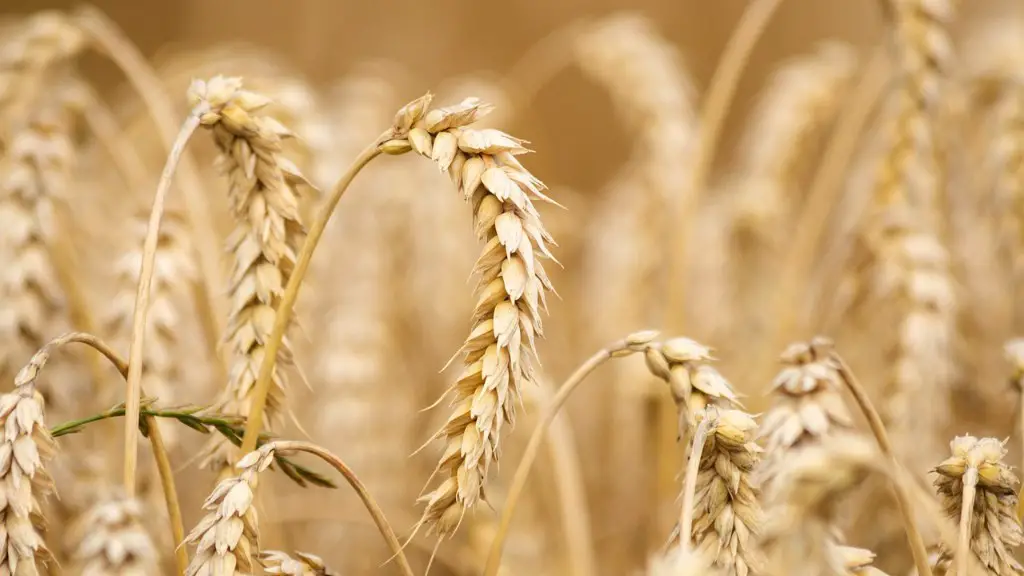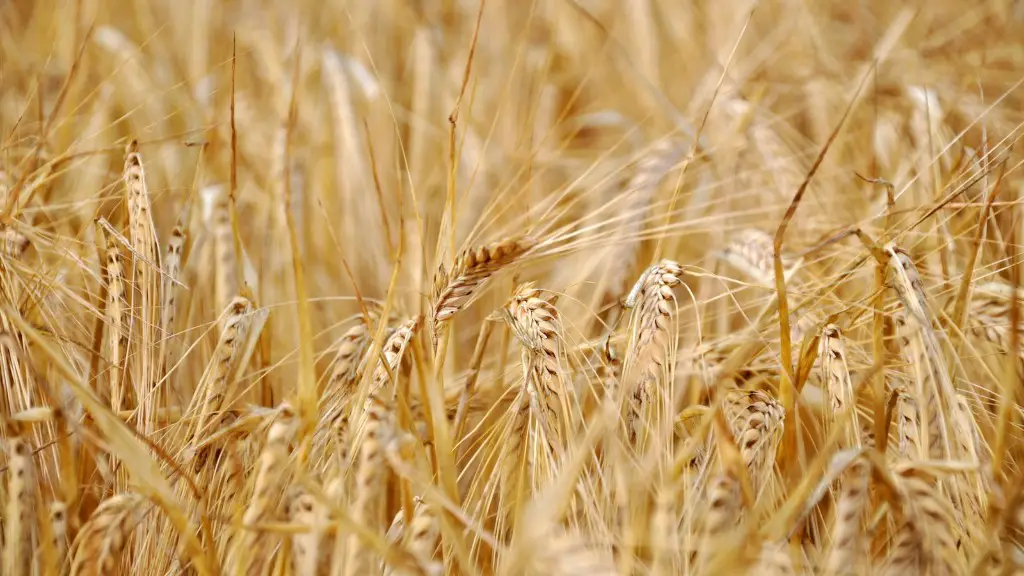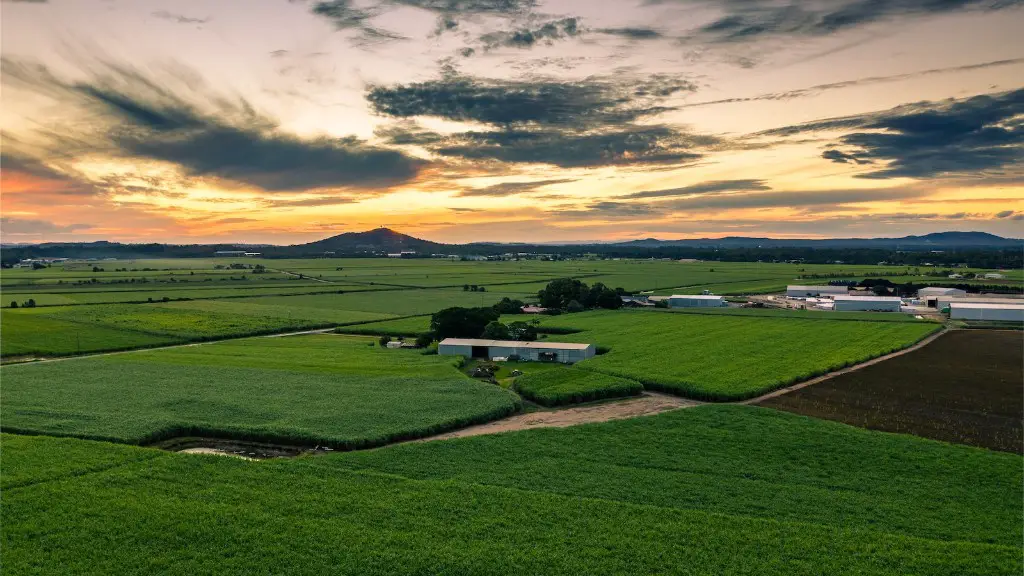Agriculture is not just important for farmers, but for everyone in the society. It affects our everyday lives in many ways. Some of the major ways in which it does so are discussed below.
Firstly, agriculture provides us with food. Without it, we would be unable to feed ourselves and survive. Our diets would be severely limited, mostly consisting of what we can forage or hunt. This would be extremely difficult, and so we rely heavily on food production. Not only do we produce our own food, but we are able to export to other countries and produce food for them as well.
Secondly, agriculture has a major effect on the economy. It provides jobs to many rural people, who are often struggling to make ends meet. Additionally, it helps to provide a great deal of revenue, both directly and indirectly. This revenue is then used to help fund important government programs and services.
Thirdly, agriculture has an impact on the environment as well. Farms require a great deal of water, which can cause problems with water availability and sources. Additionally, the use of fertilizers and pesticides can have serious effects on the ecosystem.
Fourthly, agriculture can have a major effect on the culture of a place. Farms provide a unique way of life for those who work them, and also give an insight into the history of a place. Many cultures have been heavily influenced by the farming practices of the area, and this can be a valuable source of knowledge.
Fifthly, agriculture is important for the global food industry. The industry relies on the efficient production of food in order to satisfy the needs of the global population. By ensuring the efficient production of food, agriculture helps to ensure that everyone has access to the nutritious foods they need.
Finally, agriculture is important in helping to fight hunger. By increasing food production, we can ensure that everyone has enough to eat. This can be especially important in times of famine or natural disasters, as many countries are reliant on food imports.
How is Agribusiness Connected to our Economy
Agribusiness is closely connected to the economy in many different ways. It is one of the largest economic engines in the world and is an integral part of the global supply chain. Agribusiness produces a wide range of products including food, feed, fibre and fuel, which are crucial for the economic growth of many countries. In addition, agribusiness is responsible for large-scale employment, contributing to the local workforce and providing goods and services to the broader economy. By providing large volumes of goods and services, agribusiness can support market development and create business opportunities, which can in turn spur economic growth.
Agribusiness plays an important role in rural development, as it can facilitate a transfer of capital, knowledge and technology to rural areas. This can help to alleviate poverty, create jobs and increase production. Furthermore, agribusiness helps to create economic linkages by connecting farmers with retailers, wholesalers and other businesses, creating business opportunities across the supply chain.
Agribusiness is also important for supporting export markets. By providing high-quality goods and services, agribusiness can help to gain a competitive advantage in the global market, allowing for greater opportunities to generate income. This can in turn contribute to the overall economic growth of a country.
Finally, agribusiness contributes to food security. By increasing productivity and efficiency, it helps ensure a consistent supply of food, even in times of crisis. Additionally, it provides an important source of livelihoods, employment, income and nutrition.
Importance of Organic Farming
Organic farming is becoming increasingly popular as it seeks to use processes and materials that are natural and sustainable. Organic farming avoids the use of synthetic fertilisers and pesticides, opting instead for methods that are more respectful to the environment such as crop rotation and composting. Additionally, organic farming methods can help to promote biodiversity and improve soil health, making it a valuable tool for sustainable agriculture.
Organic farming is important for protecting the environment and supporting animal welfare. By avoiding potentially harmful inputs such as herbicides and pesticides, organic farming practices help to protect the environment from pollution and toxic chemicals. Additionally, organic farms typically have higher animal welfare standards and thus help to promote animal welfare.
Organic farming is also beneficial for human health. Organic foods are generally higher in nutrients and lower in pesticides than conventional foods. Additionally, by avoiding the use of artificial inputs, organic farming helps to protect people from exposure to potentially harmful chemicals.
Finally, organic farming is beneficial for farmers. Organic farming methods can help to create value and benefit farmers in the long term, by producing higher-quality products that are more desirable. Furthermore, organic farmers tend to be better-trained and have a better understanding of the environment, thus helping to promote sustainability and preservation.
Challenges of Organic Farming
Despite the many benefits of organic farming, there are still some challenges which must be overcome in order to make it a viable option. One of the main challenges is the unpredictability of the weather, as organic farming is reliant on natural weather patterns to produce good crop yields. Furthermore, organic farming typically has higher labour costs, as it requires more labour-intensive practices such as hand-weeding and cultivation, which can increase production costs.
Organic farming also has other production challenges, such as pests and diseases. Organic farmers must rely on natural methods of pest and disease control, such as the use of beneficial insects or biological controls. Additionally, organic farming requires the use of specific fertilisers and soil amendments, which can be expensive and difficult to obtain.
Finally, there are economic challenges associated with organic farming. Despite its many benefits, organic produce is often more expensive than conventional produce, making it more difficult for farmers to compete in the market. Additionally, organic farmers must obtain certification in order to sell their produce, which can be complex and costly.
How Can We Improve Organic Farming?
In order to improve organic farming, it is important to ensure that farmers have access to the necessary resources, such as fertilisers and soil amendments. Furthermore, supporting farmers with training and education can assist in ensuring that they have the technical knowledge necessary to produce successful yields. Additionally, research and development into organic farming practices and technologies can help to improve efficiency and reduce costs.
It is also important to support farmers through incentives and subsidies, such as tax breaks or grants. This can help to offset some of the costs associated with organic farming, making it more financially viable. Additionally, government policies that encourage organic farming can help to create a favourable environment for organic production.
Finally, education of consumers is key to improving organic farming. By raising awareness of the benefits of organic farming, it can help to create demand for organic produce, thus providing farmers with an incentive to produce it. Furthermore, educating consumers on the importance of supporting organic farmers can help to ensure the long-term sustainability of organic farming.
Organic Farming Standards
In order to ensure the quality of organic produce, it is important to adhere to a set of standards. Organic farming standards help to ensure that organic farms are complying with the proper production techniques and criteria, thus protecting consumer health and animal welfare.
Organic farming standards are typically established by national and international organisations, and are set out in published documents. These standards typically outline the requirements for a farm to be certified organic, such as the use of renewable sources of energy and avoidance of synthetic fertilisers and pesticides. Additionally, the standards may include regulations regarding animal welfare, soil management and water use.
Organic farming standards are continuously evolving as new research reveals new practices and technologies. These standards are designed to ensure the highest quality organic produce, thus helping to ensure consumer safety and environmental sustainability.
Organic Farming Certification
Organic farming certification is a process whereby organic farmers are inspected and certified by a recognised body, such as the Organic Certification Project. Certification provides assurance to consumers that the produce they are purchasing has been produced to the highest standards and is safe to consume.
Organic certification involves a rigorous process, in which a farm must be inspected and its practices evaluated. Additionally, the farm must document all of its production processes and materials to ensure that it is meeting the standards set out by the organic certification body.
Organic certification is important for farmers as it provides an independent assessment of a farm’s practices. Furthermore, it helps to promote public trust in organic produce, thus making it more attractive to consumers. Additionally, organic certification can open up agricultural markets, allowing organic farmers to sell their produce nationally or even internationally.





